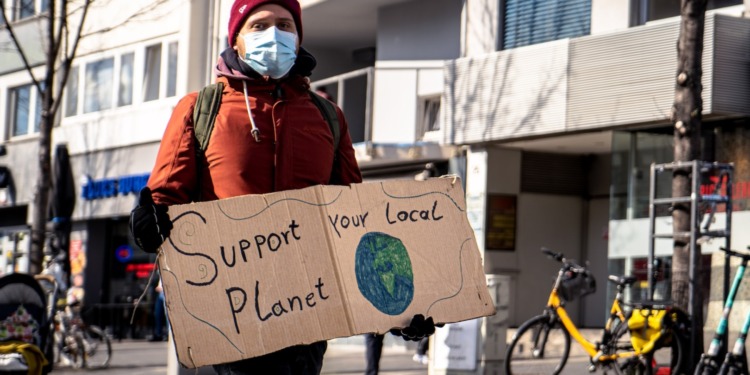Popular wisdom says that it’s easy to focus on the negatives. In 2023, it might have been easier than ever as climate change and El Niño made it the hottest year on record. It was also a year of extreme weather events that caused at least 12,000 deaths globally and COP28, which carried a lot of expectations but ended without enough positive for experts to say.
But 2023 was also a good year for climate advocacy. Some of the regulations passed during the year might help make our economy more sustainable. And new international collaborations might bring a more global perspective on climate change.
Time will tell how important those breakthroughs will be. For now, here are the most important climate change advances in 2023.
First effects of the Inflation Reduction Act
The Inflation Reduction Act was passed back in August of 2022. But it wasn’t until the start of 2023 that we saw it go into effect. At $370 billion, the IRA is the biggest climate investment ever made by a single country.
One of the stated goals of the IRA is to reduce carbon emissions by 40% before 2030. Another is to make it easier for most Americans to afford an electric vehicle. The details are complex, as they need to be. But here’s a simple example: Qualified individuals will receive up to $7,500 in tax credits following the switch to an electric vehicle.
Climate lawsuits multiplied throughout the year
From producers of forever chemicals to single-use plastic makers, 2023 was a year of massive lawsuits against big polluters. A key aspect here is how common they’re starting to become.
In the last ten years or so, PFAS producer DuPont has accrued over 6,000 lawsuits.
More recently, in November, New York State sued PepsiCo for its indiscriminate use of single-use plastic. The company was named one of the area’s worst polluters, especially on the Buffalo River. And just one week prior, several food companies were sued for their allegedly false claims about using recycled plastic.
In 2023, the European Consumer Organization sued Danone, Nestlé, and Coca-Cola for their allegedly misleading claims on recycling. While the companies claim that their single-use plastic is entirely recycled and recyclable, the truth could be very different.
Commenting on the accusations, all three companies noted that they are progressing toward sustainability. Noticeably, none of them argued that their bottles were infinitely recyclable, which is the misleading rhetoric they are accused of.
Ocean protection treaties now aim for 30% by 2030
Until recently, only 1% of high waters, the oceans that lie outside of any country’s jurisdiction, were protected by international treaties.
In 2023, after almost two decades of talks, the United Nations (UN) countries agreed on a legally binding, High Seas Treaty to expand coverage to 33% by 2030 and protect marine life in the high seas.
Related Articles: Top-Funded Startups in 2023: The Sustainable vs Business-as-Usual | How to Describe 2023 in Two Words? Global Boiling | COP28: Our Biggest Failure in 2023
It’s important to remember that, for now, the treaty is just a promise. It will come into effect once 60 countries write the proposal into law, but it’s still unclear what the details will be. The objective is to rationalize and share ocean resources, but that’s easier said than done.
The EU increased anti-deforestation measures
Indirectly, and mostly outside Europe. As a result of the regulation, some agricultural products must prove they didn’t contribute to deforestation before being sold. The Bloc is one of the biggest importers of deforestation-derived goods, second only to China. That’s why legislation like this has the opportunity to change things.
This anti-deforestation regulation seeks to guarantee that products on EU markets don’t contribute to deforestation. To do this, many agricultural products that come from recently deforested land or contribute to deforestation can’t be imported or exported.
According to the EU, the regulation will reduce carbon emissions by 32 million metric tons every year. The deforestation regulation also protects forests from degradation. It does this regardless of the laws of the country in which it is produced.
Many large agricultural exporters don’t have laws against deforestation, and some estimate that 30% of agricultural deforestation is legal.
Loss and damage fund launched at COP28
In a smaller-than-needed win for climate justice, countries at COP28 agreed to finally launch the loss and damage fund. The areas around the world where the impacts of climate change have been felt the most are often poor and not highly industrialized. Meanwhile, the countries that contribute the most are the ones that became rich in part thanks to their heavily polluting industries.
The loss and damage fund aims to help the countries most affected by climate change to recover from its impacts.
In Bangladesh, another relief fund has already done the same thing. Like in many other places, climate change in Bangladesh is projected to get much worse. Over 13 million people might be displaced by 2050.
So far, around USD 700 million has been pledged. While this is a massive sum, it’s not nearly enough to deal with the increased damage caused by climate change.
Editor’s Note: The opinions expressed here by the authors are their own, not those of Impakter.com — In the Featured Photo: A protester marching, carrying a sign. Featured Photo Credit: Mika Baumeister.










